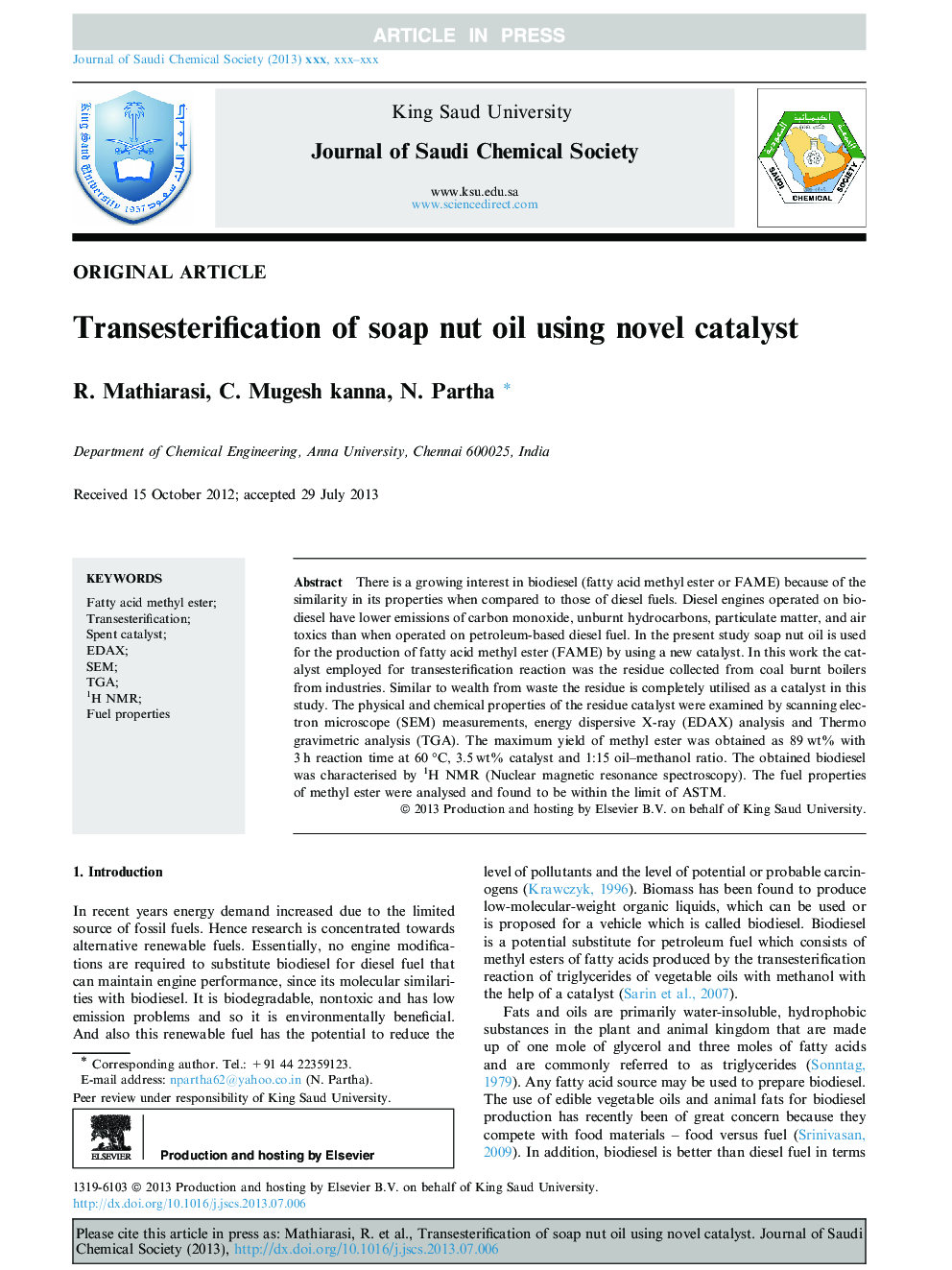| Article ID | Journal | Published Year | Pages | File Type |
|---|---|---|---|---|
| 4909353 | Journal of Saudi Chemical Society | 2017 | 7 Pages |
Abstract
There is a growing interest in biodiesel (fatty acid methyl ester or FAME) because of the similarity in its properties when compared to those of diesel fuels. Diesel engines operated on biodiesel have lower emissions of carbon monoxide, unburnt hydrocarbons, particulate matter, and air toxics than when operated on petroleum-based diesel fuel. In the present study soap nut oil is used for the production of fatty acid methyl ester (FAME) by using a new catalyst. In this work the catalyst employed for transesterification reaction was the residue collected from coal burnt boilers from industries. Similar to wealth from waste the residue is completely utilised as a catalyst in this study. The physical and chemical properties of the residue catalyst were examined by scanning electron microscope (SEM) measurements, energy dispersive X-ray (EDAX) analysis and Thermo gravimetric analysis (TGA). The maximum yield of methyl ester was obtained as 89 wt% with 3 h reaction time at 60 °C, 3.5 wt% catalyst and 1:15 oil-methanol ratio. The obtained biodiesel was characterised by 1H NMR (Nuclear magnetic resonance spectroscopy). The fuel properties of methyl ester were analysed and found to be within the limit of ASTM.
Related Topics
Physical Sciences and Engineering
Chemical Engineering
Chemical Engineering (General)
Authors
R. Mathiarasi, C. Mugesh kanna, N. Partha,
